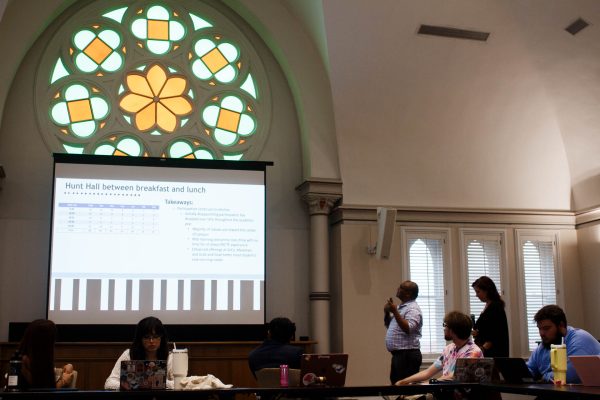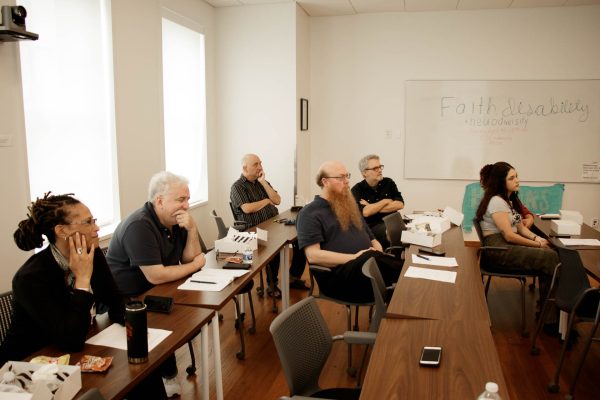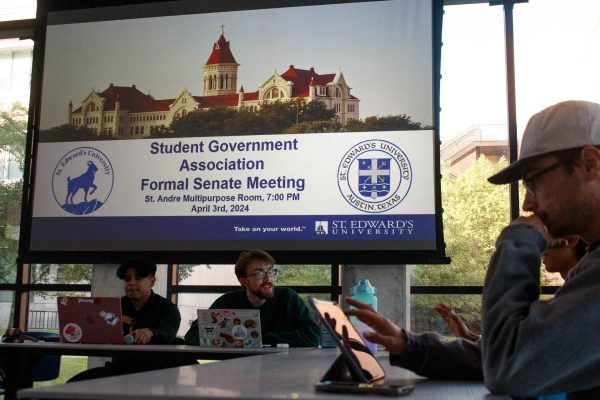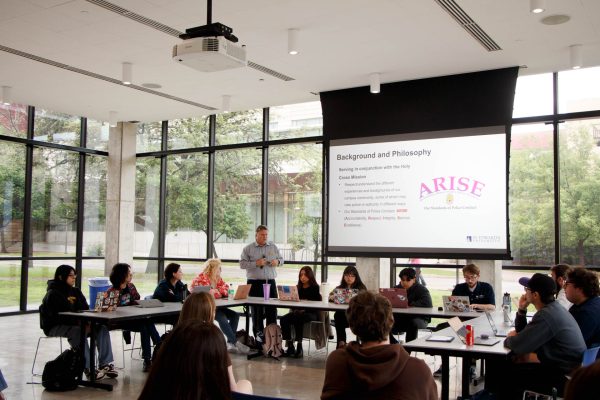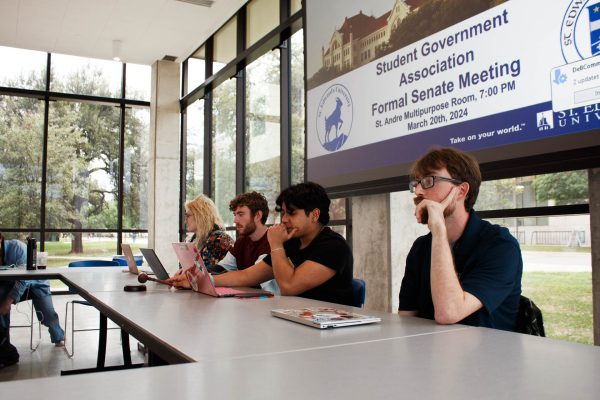SGA president responds to impeachment attempt in special session
At the special session called on Thursday, Student Government Association President Jonathan Cruz was given the opportunity to respond to attempts to impeach him at last week’s formal meeting.
Cruz presented a plan to move SGA forward during his statement. He acknowledged concerns presented to him and acknowledged that he has made mistakes.
“In order to put all of this behind us, as an association, we must work together as a cohesive team,” Cruz said. “Many of you have raised concerns about my role as president, and I fully acknowledge that I have made mistakes. I am still learning in my role as is everyone in the association.”
These are the concerns that have been made apparent to Cruz: not being present at senate meetings, being over committed and not responding to emails.
Cruz then said that he cannot attend senate meetings because he has a required class for his major 6:30-9:20 p.m. on Thursday nights.
“I personally would not like to be taking that section, but it is the only section offered for the course,” Cruz said. “Also there is no requirement in the codes for me to attend senate meetings.”
In response, Cruz said he would continue to find other modes of communication and try to have his voice present at future senate meetings.
He also said that he will respond to emails within 24 hours.
One of the main concerns brought upon about Cruz’s presidential performance is his overcommitment to various campus departments and organizations.
“I am doing my best to work on balancing my responsibilities as a residence assistant, member of the SEU cheer team, your president and as a student,” Cruz said. “However, as your president, this is the role I need you to see me in.”
As an organization, Cruz said improvements need to be made with intra-organization communication and the association’s presence in Student Life.
“From here on out, every elected and appointed member of the association must be serving their office hours, or demerits must be given,” Cruz said. The instant-message service “Slack and e-mail will be our only forms of intra-organization communication.”
Previously, Sens. Andrea Ojeda and Jamie Cardenas met with Cruz to discuss these concerns.
At the end of Cruz’s statement Ojeda brought up her concerns with accountability to his call of actions.
“How are we going to be sure that this doesn’t come up again, besides us just taking your word for it? Obviously we elected you because we didn’t think we were going to have these issues. But then these issues came up and there’s no system of accountability to catch things,” she said.
Sen. Greg Reck referenced Section 3 of the Accountability Code of “Success Metrics” to make the point that the Executive Board members, of which Cruz is the head executive, do not have an official performance evaluation form.
“My question to [Cruz] is have you taken a performance review and if not, could you explain why?” Reck asked.
“The executive board of Student Government will be discussing and formulating a plan at the next executive board meeting [on Sunday] where we are holding people accountable for their roles and serving the students,” Cruz said.
Penal Code
Later in the meeting, SGA Parliamentarian Faith Castillo presented her interpretation of options available for the senate under the Penal Code in the SGA Government Code.
Section 1: Vote of Official Censure
According to the code, any member of SGA may be officially reprimanded for failing to carry out their duties. Castillo says this official censure must be submitted as a written statement and must include reasons of complaint and relevant evidence. The accused members has the right to present testimony.
Section 2: Motion to Permanently Expel
According to the code, if the member under question continues to disregard the censure, the senate can expel the member with a two-thirds vote. Castillo says the motion to expel must present evidence that proves the accused member failed to act upon the requested call to action outlined in the official censure.
Section 3: Impeachment
According to the code, any member of the association may be impeached if they have committed high crimes and is in contempt of their office. The motion for impeachment must be presented with a petition and receive two-thirds vote.
“High crimes as defined by ‘Robert’s Rules of Order’ are not attending meetings and not doing designated work, embezzlement of funds or other criminal activities, harming the good name of the association, or abusing the privilege of held office,” Castillo said.
The petition must include summary of complaint, evidence and a clear statement of impeachment.
Section 4: Recall
According to the code, any member may be recalled from office with verifiable signatures of either 15 percent of a senator’s electing body or 35 percent of a vice president or president’s electing body.
In the case of the vice president or president being recalled, 252 signatures would have to be collected because they were voted into office with 718 signatures.
“I would recommend, if the senate wishes to proceed with the Penal Code is they so choose, would be to start with a vote of official censure. If needed, then proceed with recall that way this is done in a civil manner with the presidency determined by the student body, which are the very voices that we represent as a student government,” Castillo said.
Communications
At the end of the meeting, Communications Director Victoria Godinez said that Hilltop Views would have to go through her before talking to members of SGA.
However, the codes say that the communications director can help members of the association prepare for public interaction, but it does not say that it is required.
Duties for the communication director as stated by Section 1.2.5 include: “be responsible for submitting any information pertaining to an association to the Hilltop Views, SEU TV, E-News, and any other media outlets; and help the president and any other members of the association prepare before giving any public interaction.”


